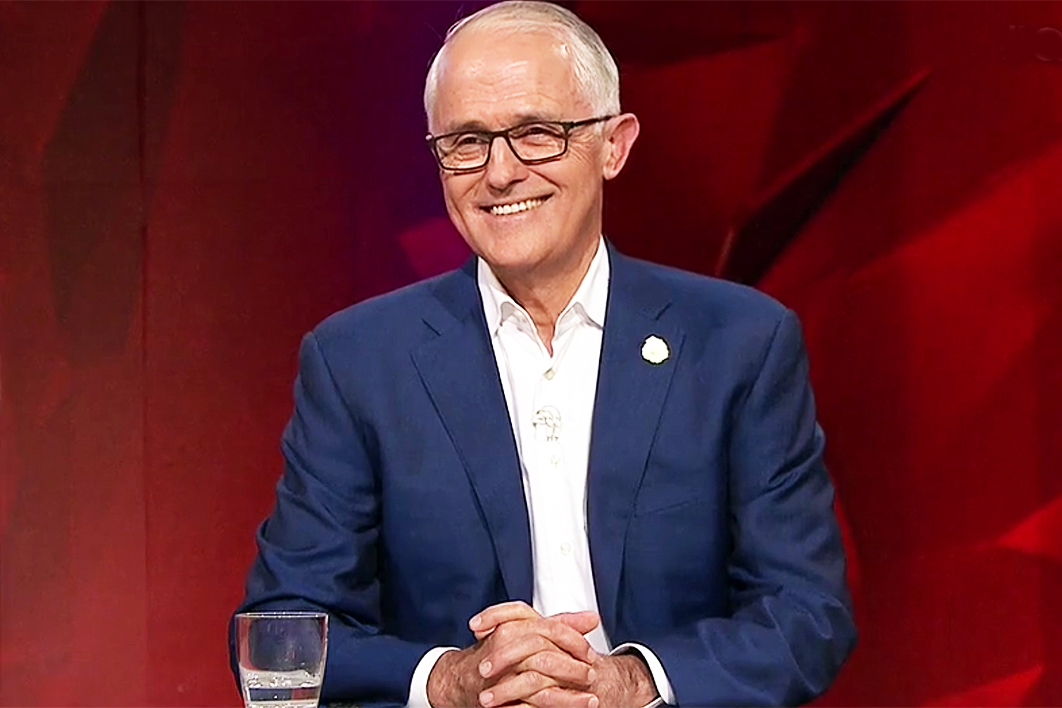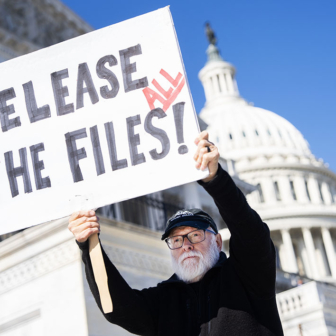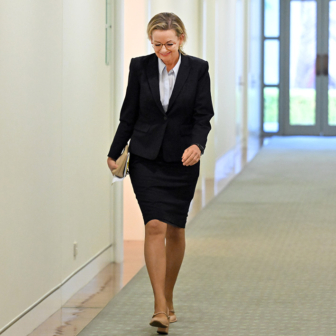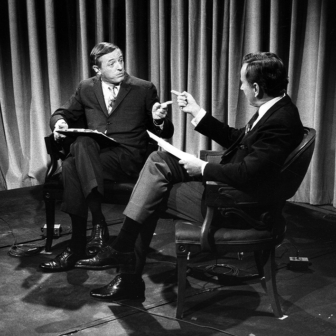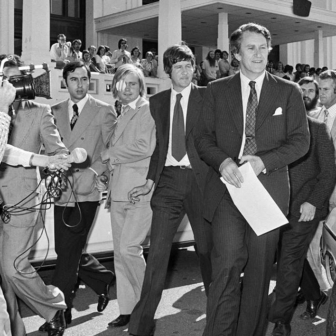“Why aren’t you still prime minister?” That, inevitably, was the first question on last night’s Q&A special with Malcolm Turnbull. Several hundred questions were submitted to the ABC, covering key aspects of policy during Turnbull’s prime ministership, but the program was not designed as a post-mortem on his government.
For viewers, the drawcard was the opportunity to get an insight into the internal dynamics of the coup. With memes of Scott Morrison’s blue bus buzzing around the internet, rebranded as “The Bus I Threw Malcolm Under,” here was Turnbull’s own opportunity for some roadkill. He reeled off his list of villains — Dutton, Abbott, Hunt, Cormann, Fifield, Ciobo, Cash, Keenan, Taylor — but the rapid, broad-brush indictment added nothing to what we know already.
A public forum like this is not the place for teasing out the intricacies of betrayal and vendetta. That takes time, and needs to be steered by canny investigative journalism of the kind we’ve seen from Four Corners and in The Killing Season. Turnbull couldn’t give away any of the juicier details of the infighting without collateral damage to his own image.
And it was clear from the outset that restoring his image was his overriding priority. The interplay between Turnbull and his interrogators rolled out like a bland version of question time in the House.
There were the Dorothy Dixers, including the opening question, prefaced as it was by a flattering resume of the state of affairs prior to the coup: “Given that the economy is ticking along nicely, unemployment rates are at decade-long lows, business confidence high and a chance for the mythical budget surplus next year…” Other questioners served up opportunities for Turnbull to comment on his mistreatment by the media and on the appalling behaviour of the insurgents, and to discourse on what kind of ex–prime minister he wanted to be.
In response, Turnbull was urbane and fluent in his own well-rehearsed way. He smiled a lot. The charm came under pressure when he was challenged by questions about his failure to pursue policies on renewable energy, about the humanitarian disasters of Manus and Nauru, and about the fiasco of the double-dissolution election. At no point, though, did he allow the demeanour of relaxed control to slip. The pitch of the voice never changed, the even pace of delivery never varied. There was no moment of spontaneous, vital engagement.
It is interesting to compare this performance with his interview with Leigh Sales three years ago, just after he toppled Tony Abbott. The charm offensive was florid, and Sales seemed a willing collaborator. Essentially, Turnbull hasn’t changed. “Confidence” is his keynote, and television is a medium that allows him to exude it with an ease he couldn’t achieve on the floor of parliament, where he frequently descended into hectoring incoherence.
Previous appearances on Q&A, where the “leather jacket” image was created, won him much popularity, and now, in an open-necked white shirt and casual blue jacket, he seemed to want to project a cool evolution. Cool and confidence are all very well in the media world, but the burdens of government call for other qualities. The questions aiming to test those qualities drew a blank.
Turnbull’s record as prime minister is, on the most generous appraisal, thin, but he was not about to reflect on any weaknesses or acknowledge any misgivings. For him, it seems, confidence means self-confidence, and the level of self-belief on display here was at times bordering on delusion. Adept camera work and editing revealed dissonances of mood as Turnbull’s broad smile was contrasted with expressions of consternation, scepticism, frustration and even contempt on the faces of audience members.
Perhaps he makes more sense as a prominent figure in business or media, but as a politician Turnbull is an enigma. Even hardened Canberra journalists fell into the trap of reading him as he wanted to be read. When we desperately needed a political figurehead who might restore a sense of national dignity to parliament, he seemed to be it. As a successor to the relentlessly pugnacious Abbott, he promised a certain decorum and gravitas. And now, as Scott Morrison embarks on an orgy of crass self-promotion, Turnbull looks positively dignified.
Were his problems always the fault of pig-headed colleagues who got in the way of his good policy ideas and sound principles? Where was the “real” Malcolm Turnbull? Given the opportunity of an hour of prime television devoted entirely to himself and his legacy, would he please stand up? That was a question answered firmly in the negative. •
